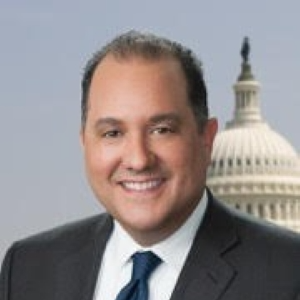By 2010, the internet had become an indispensable part of virtually every aspect of our lives. We read newspapers, books, and magazines online instead of on paper, we shopped online instead of visiting the mall, and we streamed movies directly from the internet rather than renting them from a video store.
Also by this time, much of our daily interactions with other human beings occurred over the internet, through email and social media. Entertainment of all forms had migratedonline.Consumers across age groups were increasingly turning to computers and mobile devices for music, television shows, and the news. Yet in 2010, there was no legal internet-based, real money gaming in the United States. A number of companies, largely located offshore, offered online poker and other games, but did so in a legal gray area.
In 2011, the federal government announced that online domestic sites offering gaming were functioning illegally under applicable legislation and ordered the shut-down of the largest internet poker websites in the U.S. This created a vacuum that several states sought to fill by passing laws to legalize online intrastate iGaming.
In the years that followed, a growing number of states began permitting real money online poker and other internet games. Some of these states even entered into agreements allowing their players to play each other across state lines. The benefit to these states – as well as to others considering making the jump – was clear: research in states like Nevada and New Jersey where online gaming is permitted demonstrated that the practice offered the potential to increase in-state employment (so long as jobs and equipment were required to stay within intrastate border) and profit from collection of substantial state tax revenue and licensing fees. For states which already had brick and mortar casinos, online gaming offered opportunities to cross-market and thereby resuscitate struggling hotels and casinos with an influx of new patrons.
In 2018, the United States Supreme Court’s decision in Murphy v. National Collegiate Athletic Association, et al., found that the Professional and Amateur Sports Protection Act (PASPA) of 1992 was unconstitutional and that states could decide for themselves whether to legalize or prohibit sports betting. That decision opened the floodgates of state legislation legalizing sports betting, opening up an entire new industry to operators and consumers alike. More states began introducing legislation to legalize sports betting and other forms of internet wagering and online gaming. At the same time, the federal government and other forces persisted in attempts to curb the growing industry and the spread of legalization; for example, the U.S. Department of Justice (DOJ) issued an opinion instructing that the Wire Act applied to all forms of gambling (i.e., not just sports betting), and that any internet wagering that used a wire communication (like a modem) and crossed state lines was illegal under federal law.
As of this update, the legal status of online gaming and betting across the United States is rapidly evolving. In this white paper, we seek to provide a comprehensive discussion of the current status of online gaming in the United States. We begin with the legality of – and enforcement against – online gaming and betting, including an analysis about the federal statutes that have been applied and some of the significant milestones in federal law enforcement against the industry. We then discuss sports betting, a burgeoning field since the 2018 Murphy decision. Next, we provide detailed information regarding online gaming laws that states have passed or are considering, as well as information regarding online gaming funding. We then address how fantasy sports leagues and esports, the “new kids on the block” of online gaming and betting, will be viewed under state and federal law. Finally, we offer insight into new industries of affiliate marketing and skill-based games that have popped up with the onset of internet-based gamingand betting.
Our hope is to provide readers with an up-to-date resource on the current status of the online gaming and betting industry in the United States, which will be updated regularly as developments occur.
We welcome you to download a complimentary pdf of "The Definitive Guide to Online Gaming and Betting in the United States" white paper here.
















